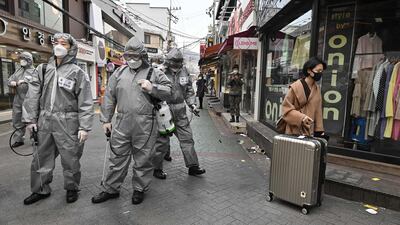The World Bank has set up an initial fund of $12 billion (Dhh44bn) to help member-countries cope with the health and economic impact of the coronavirus.
The fast-track support package will provide initial crisis resources, which comprises finances from the International Bank Reconstruction and Development (IBRD), International Development Association (IDA) and International Finance Corporation (IFC), the World Bank said.
The lender will provide grants and low-interest loans from IDA to low-income countries and loans from IBRD to middle income countries. The IFC, the World Bank's private sector arm, will provide its clients with the necessary support to continue operating and sustain jobs.
“We are working to provide a fast, flexible response based on developing country needs in dealing with the spread of Covid-19,” said World Bank president David Malpass. “This includes emergency financing, policy advice, and technical assistance, building on the World Bank Group's existing instruments and expertise to help countries respond to the crisis."
Countries around the world are facing varying levels of risk and vulnerabilities to the disease, which requires different levels of support. The World Bank will prioritise support to the poorest countries and those at high risk with low capacity, the lender said.
“As the spread of Covid-19 and its impact continues to evolve, the World Bank Group will adapt its approach and resources as needed,” it said.
From its origins in the Chinese city of Wuhan, the coronavirus has spread to more than 70 countries with global fatalities rising to more than 3,200. The number of infections has surpassed 91,000 and countries such as Iran, South Korea and Italy are now reporting faster infection rates than China.
The World Bank along with the International Monetary Fund is leading calls for a co-ordinated global monetary policy response to reduce the impact of the outbreak that is threatening to derail global economic growth. Concerns over the virus led to a worldwide investor sell-off that wiped $7 trillion from stock markets and led to the worst weekly decline since the 2008 global financial crisis.
Earlier this week, the Organisation for Economic Co-operation and Development, revised down its estimate of global GDP growth by half a percentage point to 2.4 per cent in 2020. It said growth could fall to 1.5 per cent if the outbreak persisted and could tip many countries into recession.


